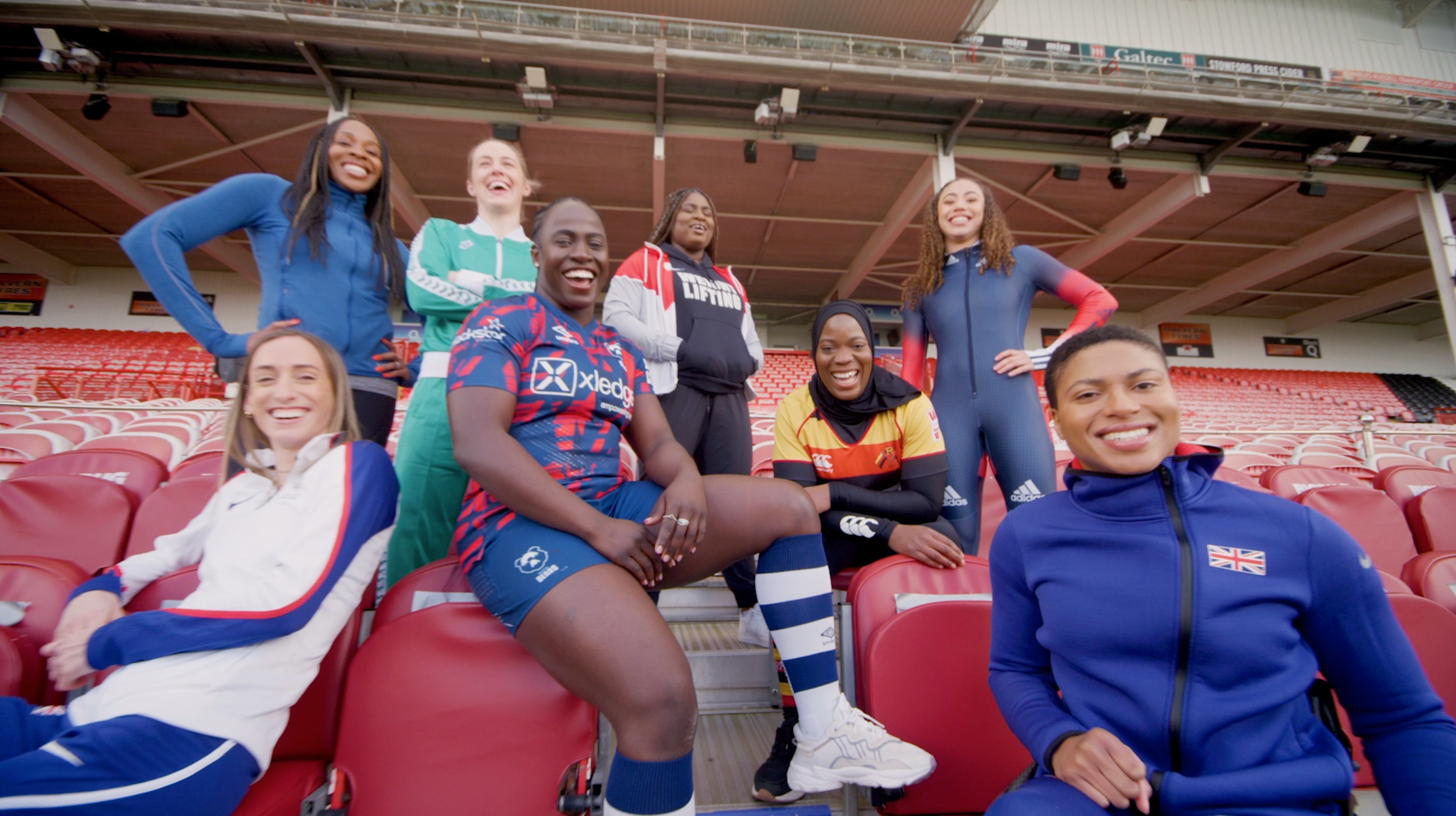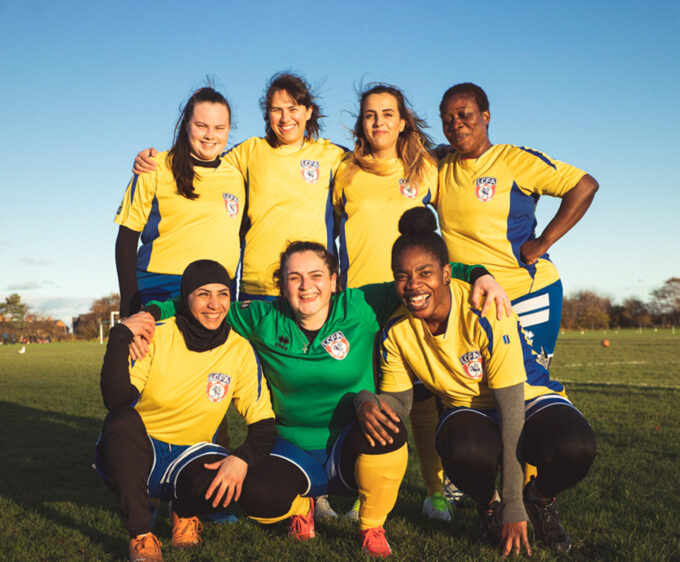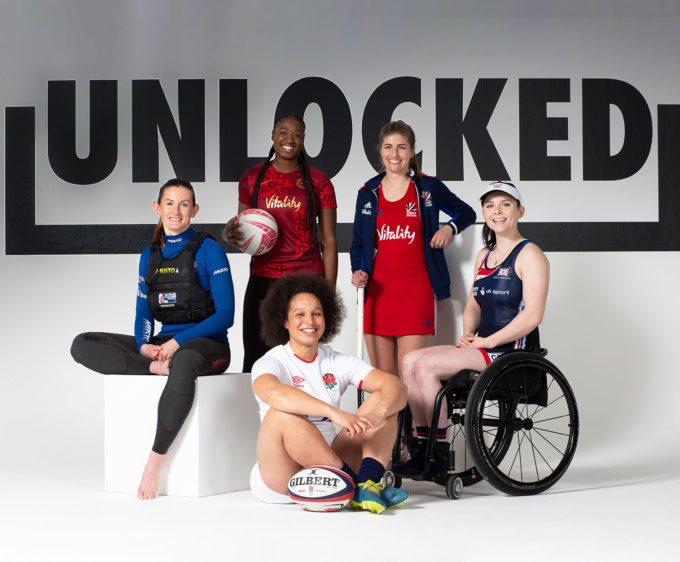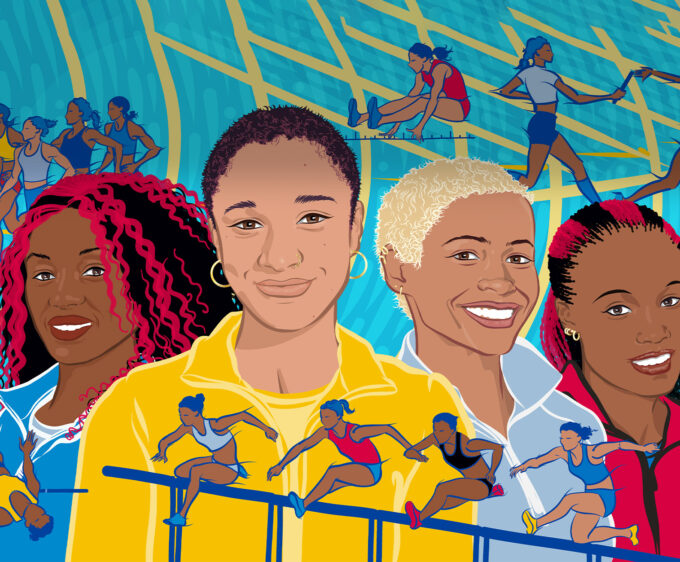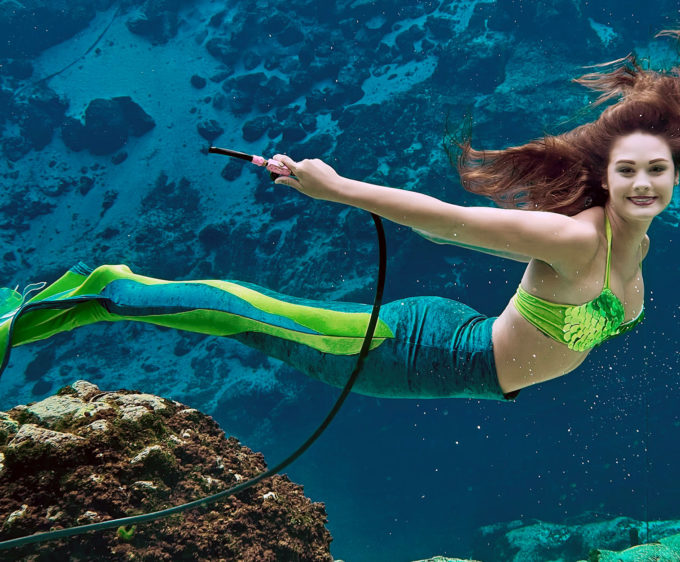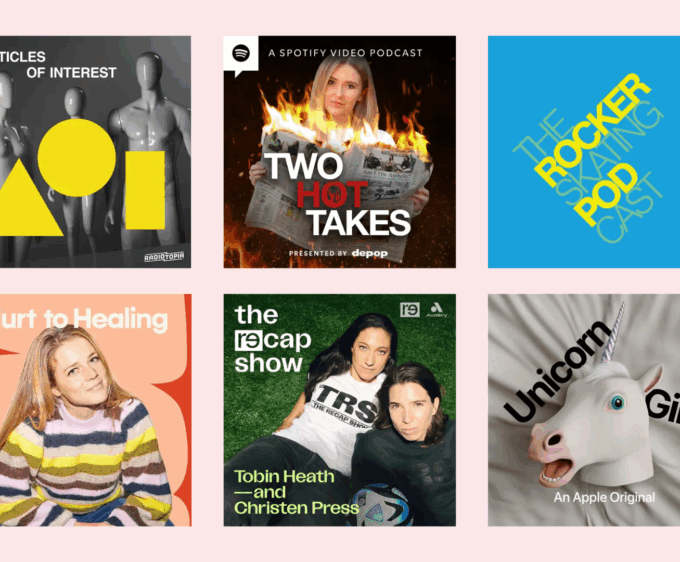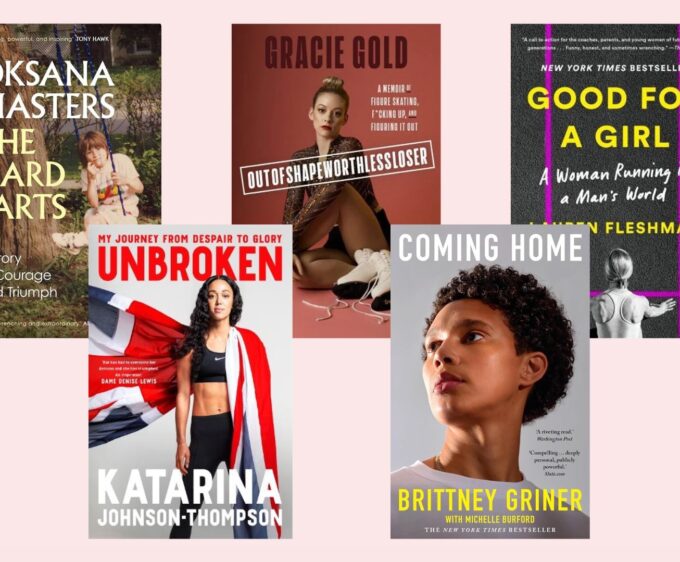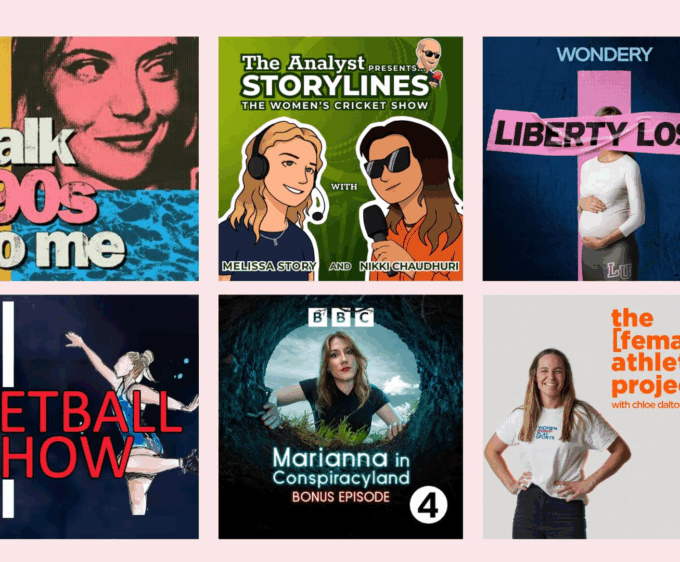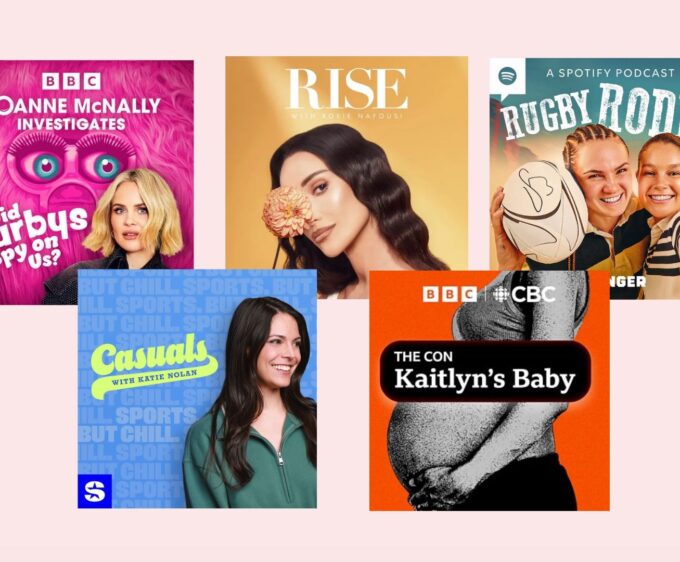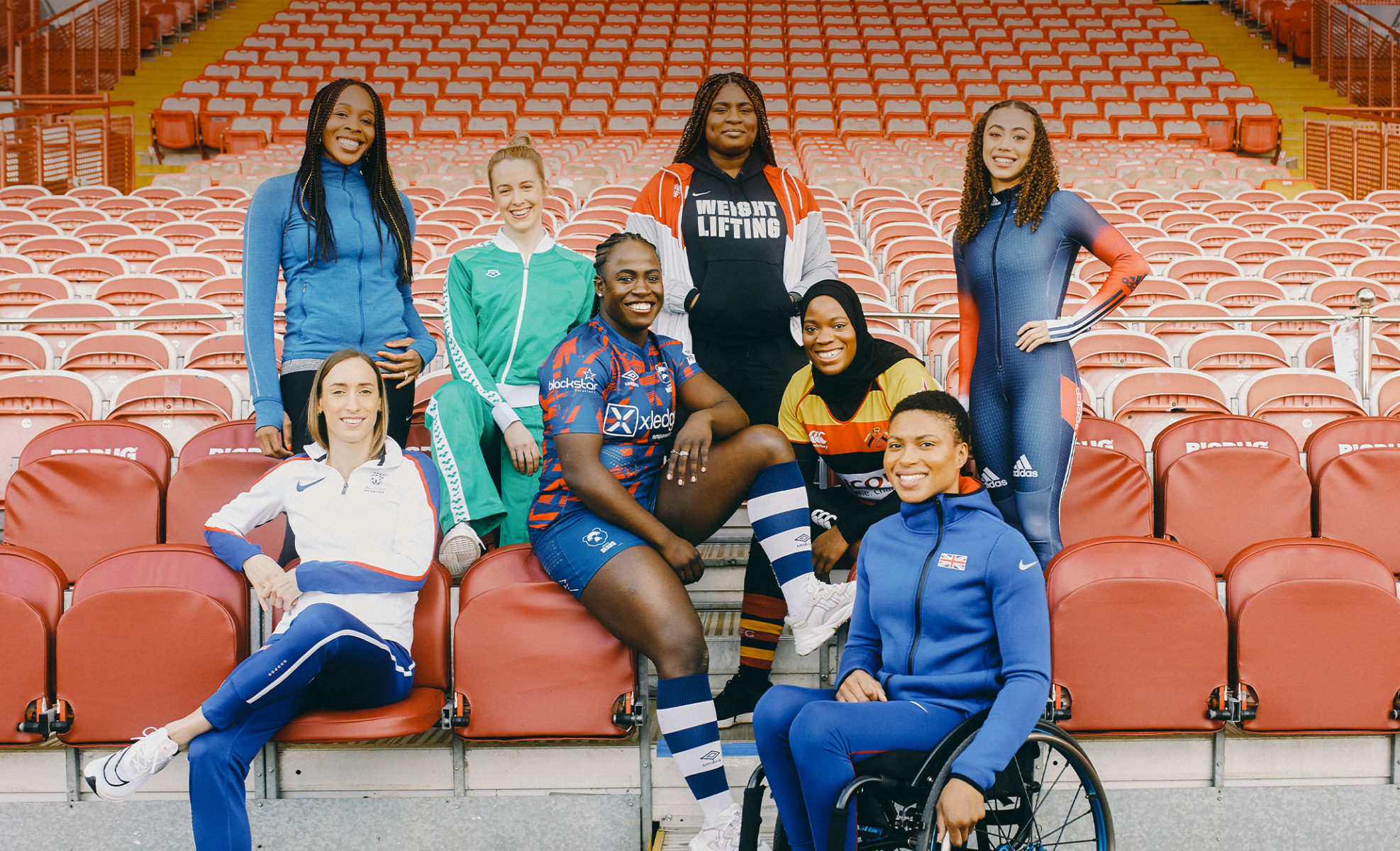
Unlocked: Making Moves For Change
“I’m around the right team here”. Athletes are fired up about Unlocked: we talk to a handful of those taking part about what the Women’s Sport Trust programme can do for them and women’s sport
By Kate Carter
Photography by Ossi Piispanen
The Unlocked programme has one definite purpose – to amplify the voices of women in sport. Started by the Women’s Sport Trust in 2020, the programme puts together athletes with some of the top names in sports media, policy making and leadership, to mentor, nurture and support their projects and future careers. As Tammy Parlour, CEO at he Women’s Sport Trust says, “Over the past two years, the programme has supported athletes in so many ways: we’ve seen ten athletes set up their own organisations, seven have joined Boards, four were appointed as athlete representatives and many more have spoken out about certain subjects for the first time.
Several of this year’s intake have taken part in a launch event and exclusive film and photo shoot produced by Glorious at Gloucester’s Kingsholm Stadium and you can see that, like previous alumni, this is a fantastically diverse group of women who are fired up for change. It’s abundantly clear that the programme is already making plenty of noise. We chatted to a few of those at the launch to discover what Unlocked means to them.
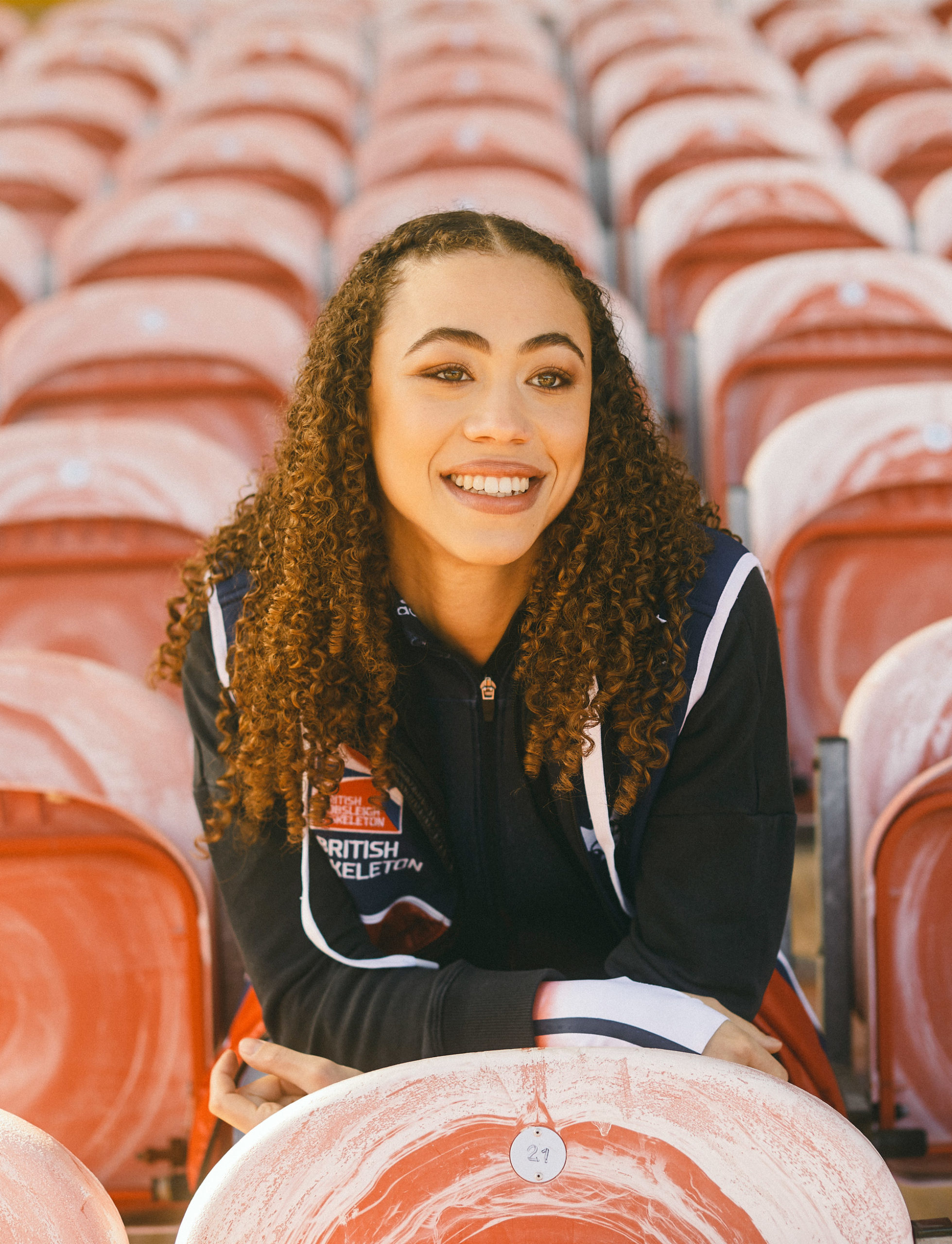
One of the youngest, Tabby Stoecker, is just 21; she’s just begun her chosen career of careering down the ice track at speeds of up to 125km/h. It’s not something she dreamt of as a kid, if only because skeleton is hardly a sport you encounter growing up in north London. “I guess my sporting background is quite sparse” she muses. “But when I was 12 I got really interested in Circus Arts – my discipline was flying trapeze. Obviously, that’s quite adrenaline-filled and takes a lot of spatial awareness, which I think gave me a knack for skeleton!” In 2019, Tabby spotted an ad for the Discover Your Gold programme on Instagram. She was picked, started training, and earlier this year won a silver medal at the Junior World Championships – astonishingly just a month after her first competition. With the start of the next Winter Olympics cycle underway, big things surely beckon.
“I feel like this is the first year I feel like I really can identify as an athlete” she muses. “I think I definitely had impostor syndrome to begin with,” she says. “But the Unlocked launch was amazing. To be in a room with some of the people who I’ve admired since I was young. I think for me, just getting to be in that space is better than a medal!” The photo shoot was a novel experience for her, too. “I’ve never had my makeup done by someone, or been in front of a camera like that!” she laughs. “The way they approached it was really lovely, just to be in tune with who we are as people – as women as much as athletes. It was so exciting to be a part of it”.
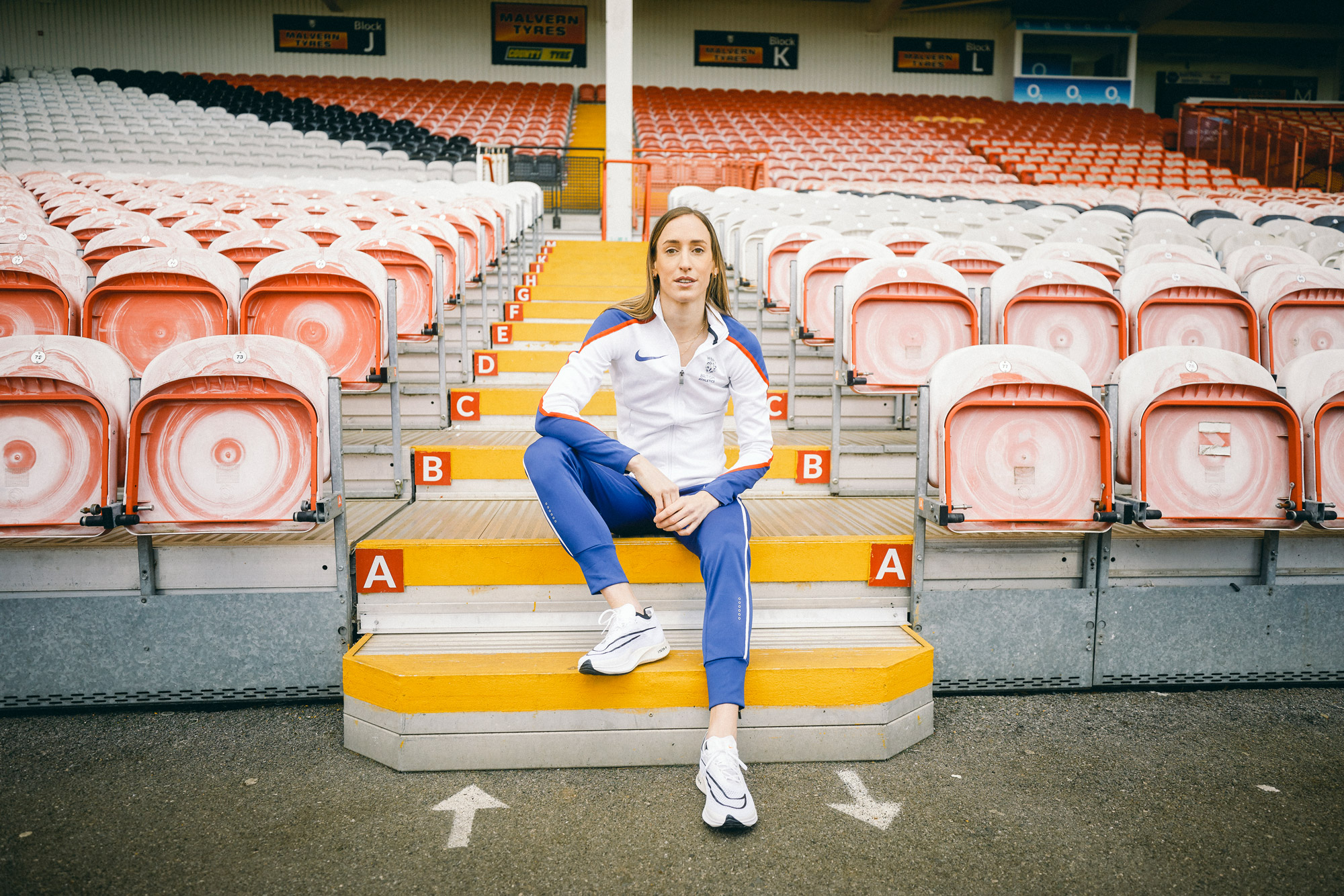
Given Laura Weightman’s stellar athletics career in middle and long distance running – including two Olympic Games finals and medals at both the European and Commonwealth championships – you’d think a photoshoot would be commonplace for her. But far from it: “It’s something I don’t do a lot of, having that confidence to do something like that, putting myself out of my comfort zone. I just hope they got some good shots with my eyes open!” she laughs. Challenging herself is in fact Laura’s goal for Unlocked: “I really want to push myself, to put myself out there a little bit more, to be part of the next generation of women in sport and health and make change for things that I didn’t necessarily have growing up in sport.” She has been coaching for a few years now, but more than the technical aspects, it’s the human side that appeals to her. “It’s the athlete mentoring and athlete support that I really enjoy the most,” she explains. “And that feeling that running gives me – I want to give that to young girls, to instil a passion for sport and activity in them”.
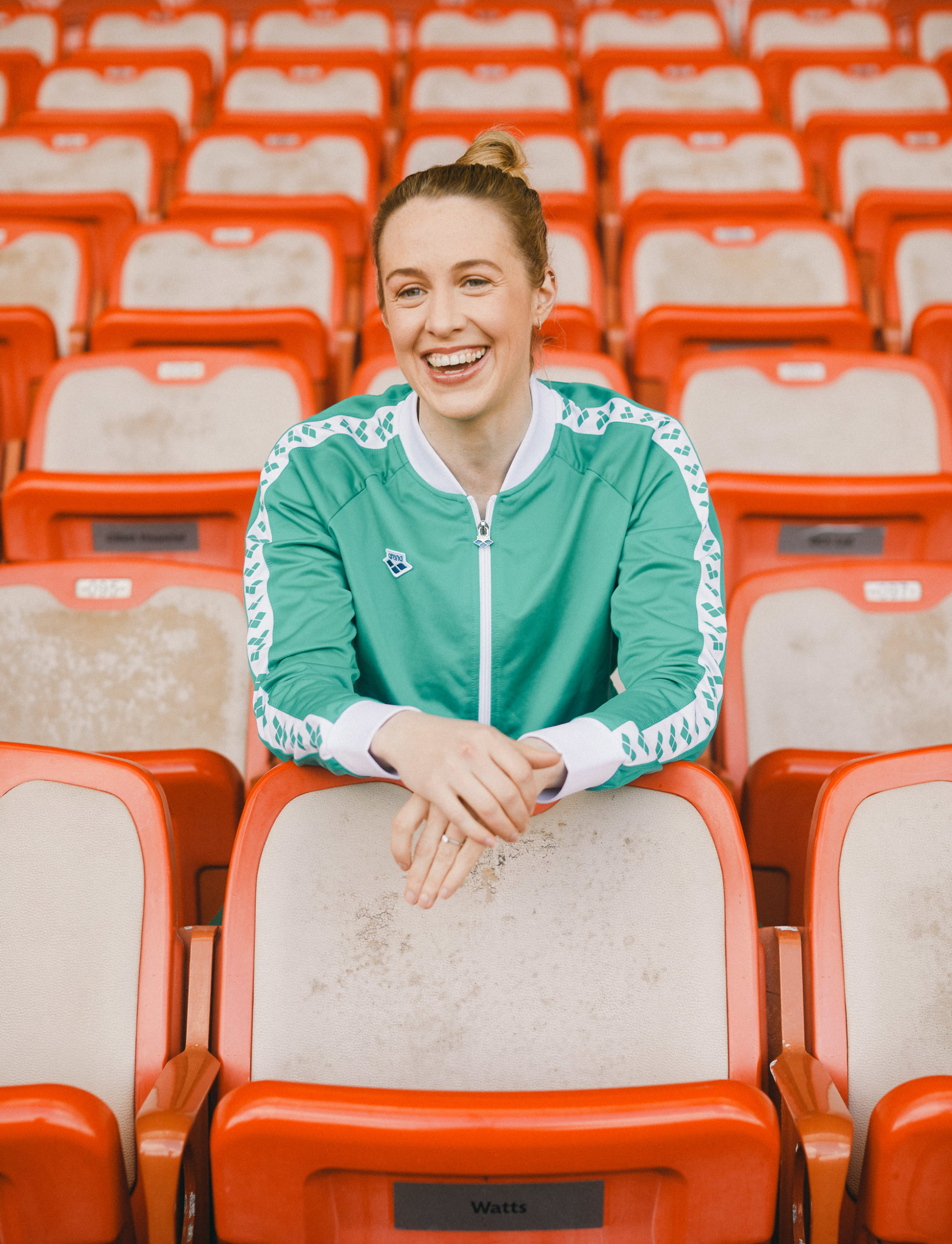
When you talk to the Unlocked athletes, you start to see overlapping themes, areas in which you just know they will be bouncing ideas off each other. Tabby Stoecker talks about wanting to empower girls going through puberty. “I personally have had really negative experiences around it,” she explains. “I’d like to turn that on its head, and really oppose the idea that having a period, that getting breasts will hinder you in achieving what you want to in sport.” And at the other end of a stellar career but sharing the same interest, is swimmer Hannah Miley: “We’ve got this information. We’ve got this research. Why don’t we start talking about it?” she asks. “There’s lots of different reasons why girls drop out of sport, but one of the things I really don’t want them to feel like is that their menstrual cycle is hindering them or holding them back.”
Hannah has recently retired, and speaks eloquently about that. “I’m still getting used to it,” she admits. “There was that loss of identity, that sort of sense of purpose, of knowing exactly where I needed to be every day.” But it was this search for a new purpose that drove her to Unlocked. “When I retired, I lost a lot of confidence in myself and I felt that I’m no longer useful. But even just being at the Unlocked launch event – really for the first time since retiring, I felt so connected and so involved in a group of women. I just felt like I belonged.” Also now retired, England netball player Pamela Cookey heard about Unlocked through her work as an ambassador for the Mintridge Foundation – a charity dedicated to enhancing life skills in young people through sport. She is also the Director of Netball at Severn Stars and has become a member of the Sky Sports commentary team, but is ambitious for more: “What I’m trying to do is be a better person, enhance my skill set and add to my toolbox – but also thinking, how can I help the women’s sports landscape?”
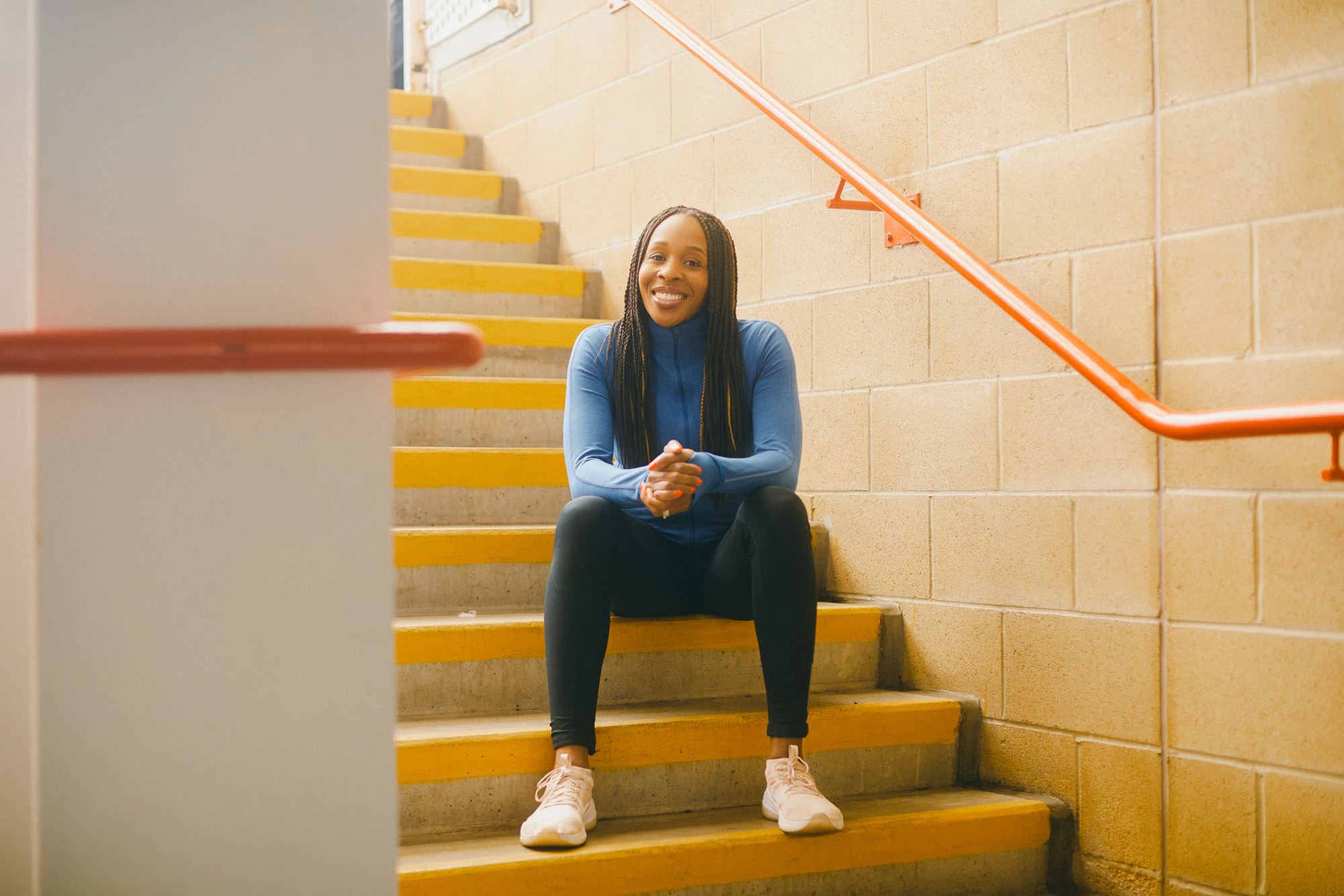
She too was blown away by the launch event: “There was just so much energy in the room! Everyone wants to do something amazing.” And para-athlete Kare Adenegan agrees, “I’m usually in my athletics bubble, so it was so nice to meet other people. We all related on that level of being elite sportswomen, and we all really shared some of the struggles we’ve gone through as athletes. So it almost felt like a sisterhood already, even though I just met a lot of them for the first time.” For Kare, that sisterhood of Unlocked is also an opportunity to put her aspirations into action. “I really want to get involved in promoting diversity in my sport but I’d like to learn how I can do that practically, what that actually looks like,” she explains. In the meantime, she has a busy year of sport. “My main goal this year is the Commonwealth Games. Being an integrated event, it’s such a great opportunity to showcase para-sport alongside able-bodied sport as well.”
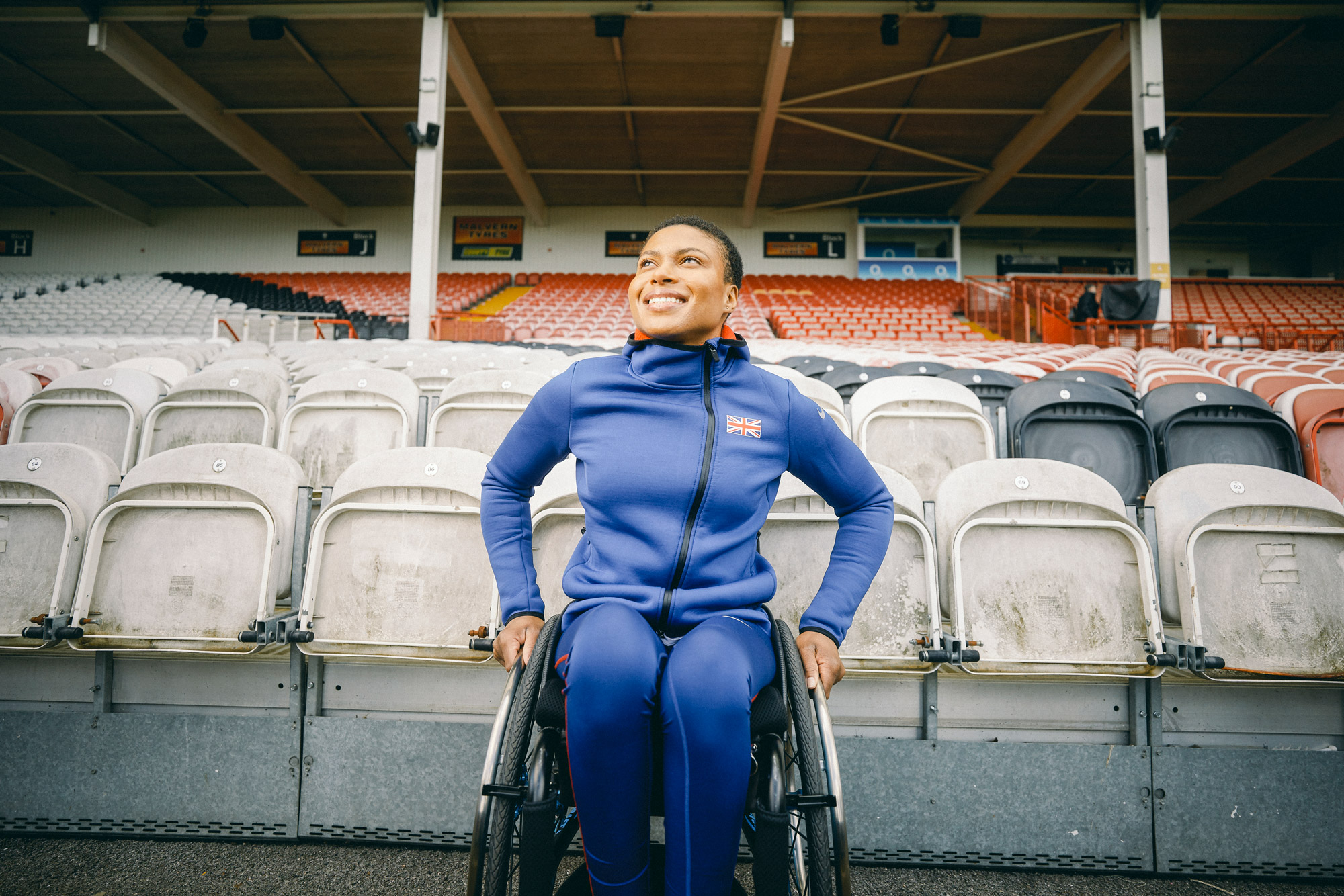
unlocked
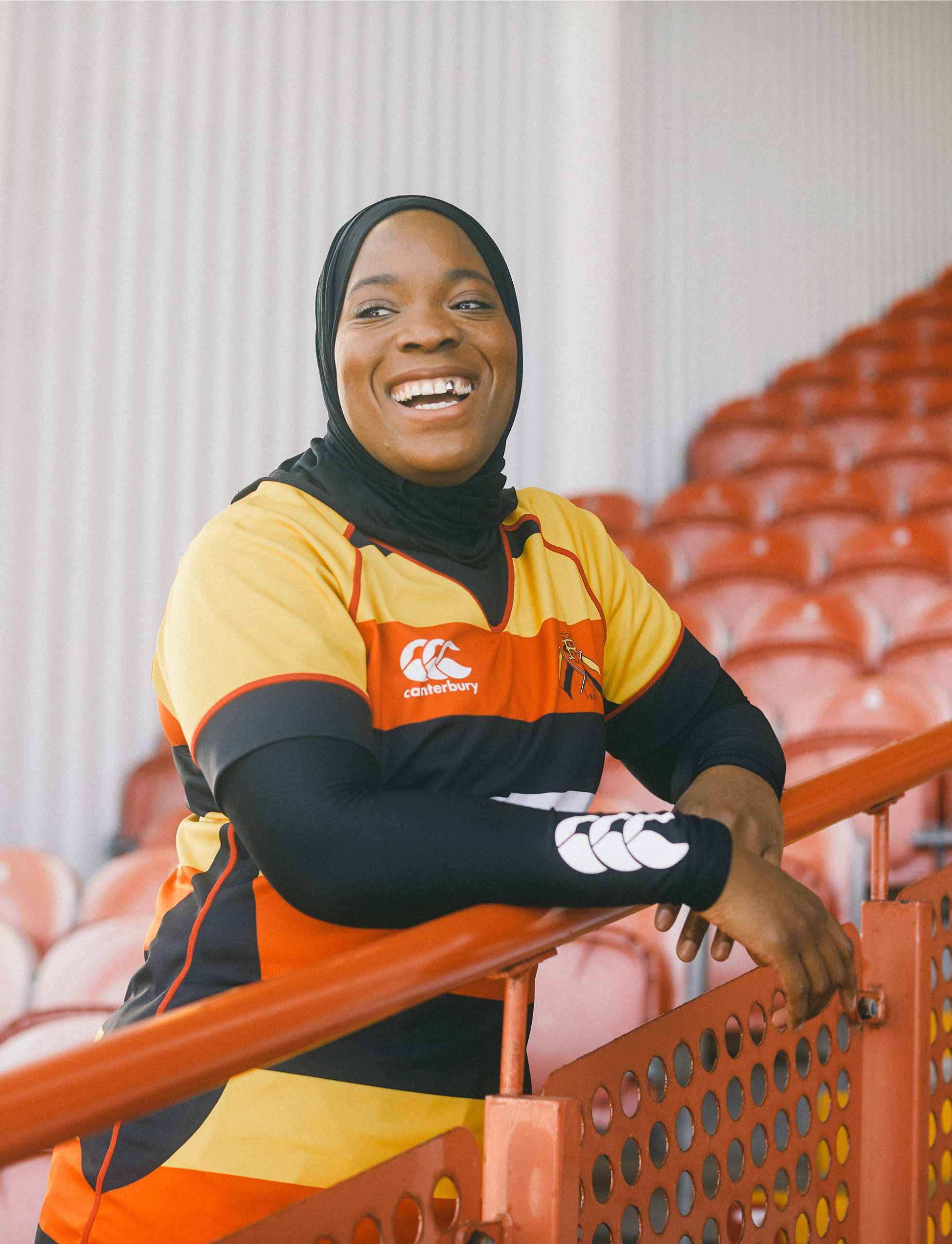
Another common refrain amongst the new intake of Unlocked is how they only discovered their sport by chance, but want to make sure that opportunities for girls aren’t just left up to fate. Zainab Alema, rugby player, neonatal nurse, mother of three, powerhouse, is passionate about getting rugby into schools. It was only thanks to a rugby-mad PE teacher that she came across it herself: “I’d seen rugby on TV, but it was just like a hot mess of men just jumping on top of each other,” she laughs. “But I was excited by it, absolutely buzzing.” Yet despite falling for the sport, it didn’t feel like it was wholeheartedly embracing her back. “When I was about 18, I started to notice that actually, I’m a bit different within the rugby community,” she explains. “I was often the only black girl on my team, the only Muslim girl, a female in the male-dominated sport and, on top of that, because of my faith and not drinking alcohol. So many things that would, I guess, make me think, “How did I end up in rugby?”
And so Zainab’s goals – for her career, and for Unlocked – are crystal clear: “I want to play for England one day, that’s my dream. I feel like getting an England shirt would be the one thing that will make everything that I’m trying to do fall into place. Encouraging young girls to go to rugby, smashing stereotypes, breaking down barriers, making people believe in their dreams.” Like Zainab, Simi Pam is a rugby player who didn’t grow up with the game – in fact athletics was her sport for a long time. “Track and field is kind of a safe space for black people, especially black women,” she reflects. “There’s never a lack of black women in the sport to inspire you, whether they are British or American or Kenyan. You look at it, and you see lots of people who look like you.” By contrast, rugby barely figured. “Until I actually went to university and went to the women’s rugby team, I didn’t realise that women played rugby. Given how much I love the sport and how much it suits me, I think if that had ever been an option, I would probably have got into the sport a lot sooner.”
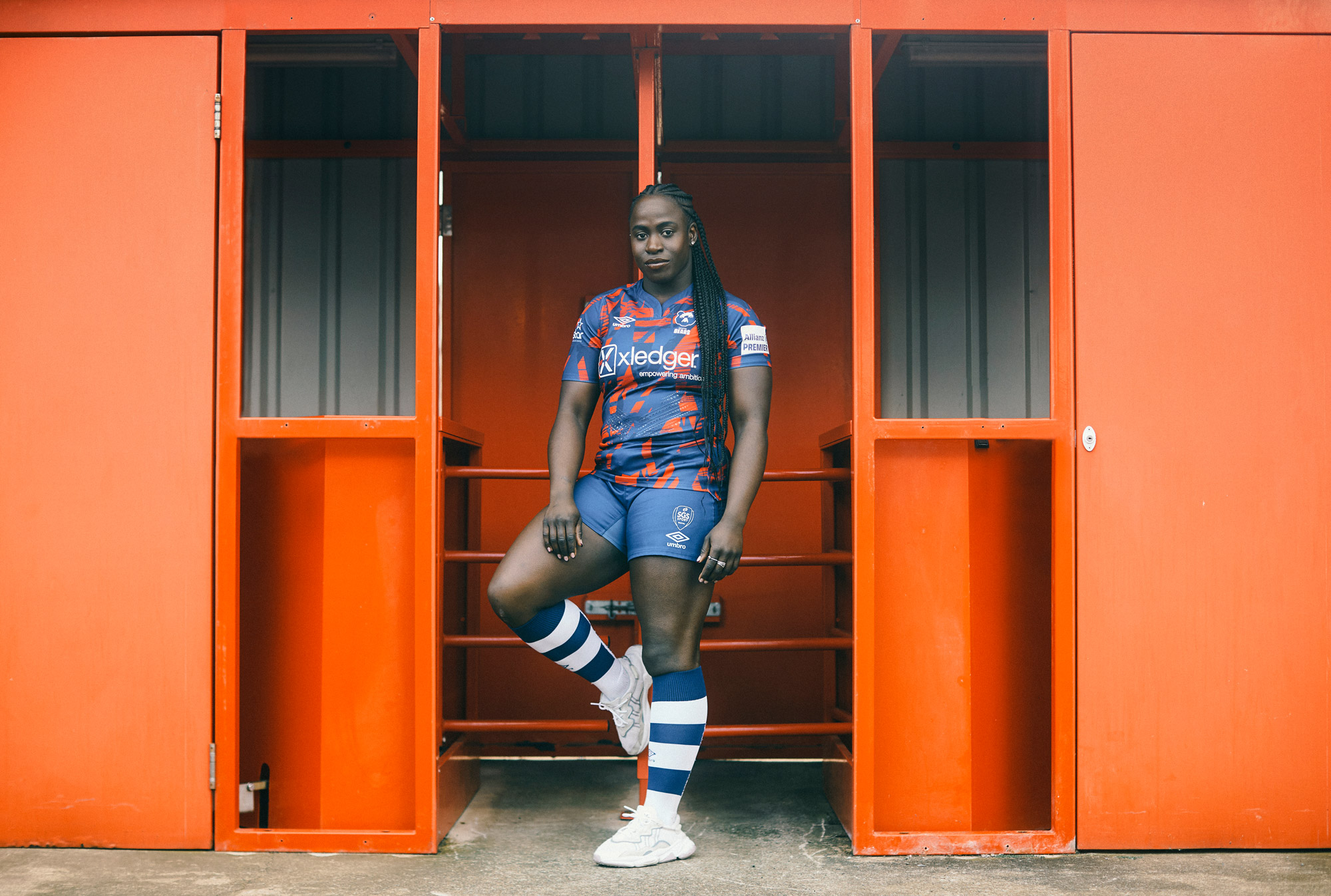
Being that visible role model for girls now is therefore something Simi is keenly aware of. “One of the things I can do to help the picture is just exist! To be loud and prominent and proud of being a rugby player, playing well and having aspirations to get into the higher echelons of the sport,” she explains. That, and continuing the hugely impressive feat of juggling her training with working as an NHS doctor. She is also keen to learn via Unlocked how to effectively combat some of the negative stereotypes she herself has faced, on behalf of other girls and women. “All the body image stuff people say on the internet, the racism, the microaggressions… I want to have a voice to be able to address those kinds of things, but in a positive way. How can I make people aware of it, and how can we then address that in a constructive way? How can we change that narrative for the next generation of girls?”
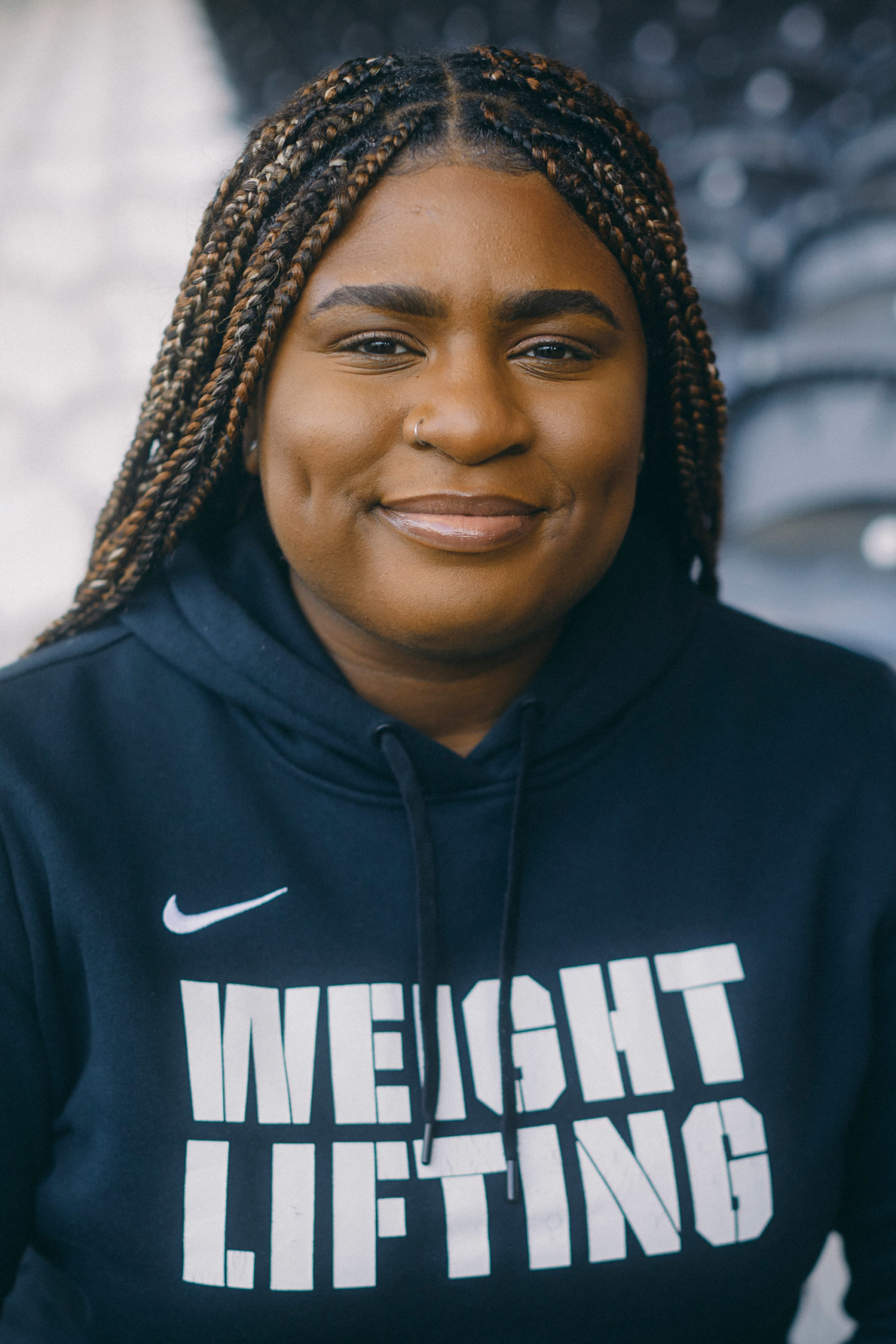
Changing the narrative and helping girls make their dreams a reality, but with the right support, is something that weightlifter Mercy Brown talks passionately about. She may only be 25 but she has a wealth of experience behind her – her first international competition at 17, the Commonwealth Games at 18. She says she was blessed with a hugely supportive coach and support network, and wants to give something back. “My passion is towards those from a similar background to me,” she explains. “Giving them the opportunity that I had, to be able to enter into an elite sport, but also being able to educate and protect them. I think as a younger athlete, and especially as a young black athlete, you can easily be seen and treated as a lot older than you are. I would like to be able to funnel talent into the sport but also educate and protect them and equip them with the tools they need to be able to excel.”
Tammy Parlour, CEO at Women’s Sport Trust, agrees that while the picture is slowly changing, more needs to come: “The sporting landscape for women has changed in many ways, even in the two years since we established Unlocked. Women’s sport is growing in visibility, and we have an exciting year ahead with major tournaments in football, cricket, rugby union and rugby league. However, we know from talking and listening to our athletes that there is still a lot to do. The issues these sportswomen care about are many and varied and we can’t wait to see what the 2022 cohort achieves.”
It is Mercy’s description of the Unlocked launch that really stands as a wonderful summary of the programme and an agenda for the future: “Sometimes in sport you can feel like you’re going through it alone. So to be in a room with these ladies and just to hear about their experiences – so I feel like it’s going to be a force to be reckoned with. These are some determined hardworking, accomplished women who are literally sitting at the table and saying things have to change. For me, that has kind of put a big fire in my belly. My thoughts are: ‘I’m around the right team here’.”
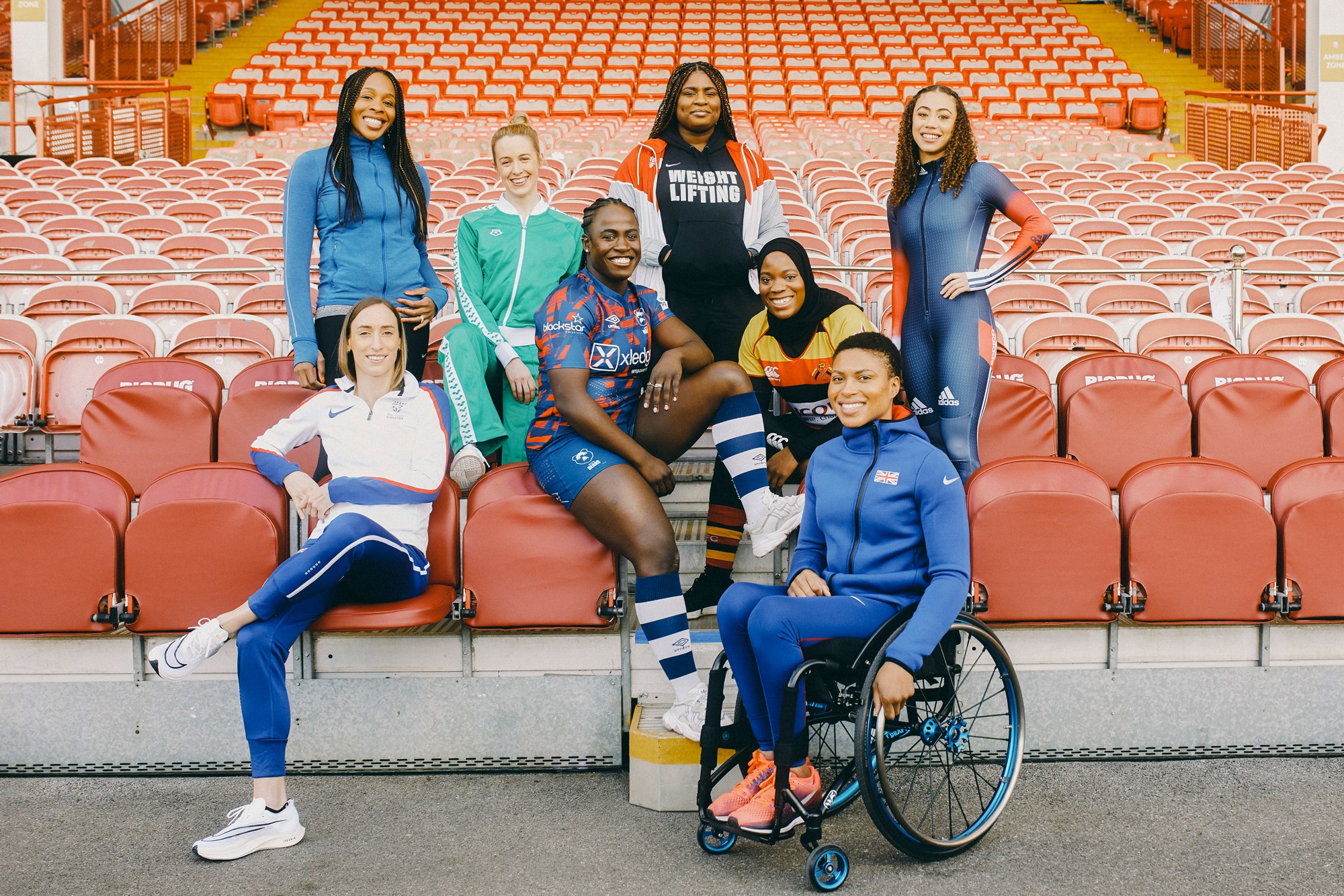
Find out more about Women’s Sport Trust here.

